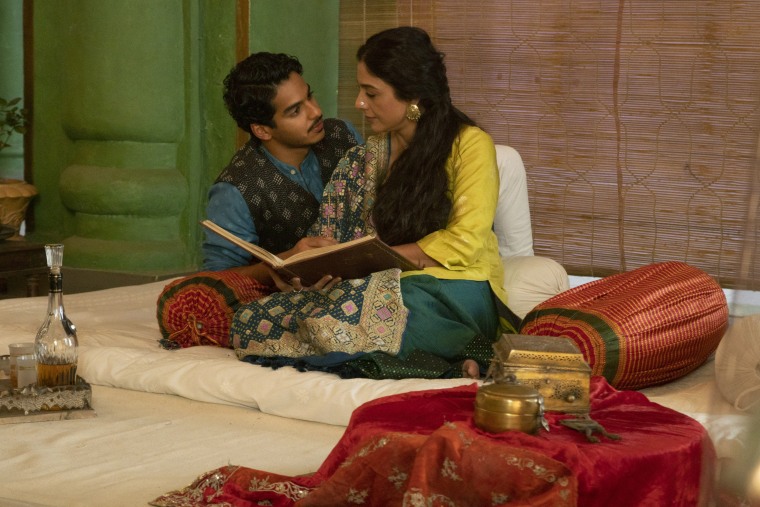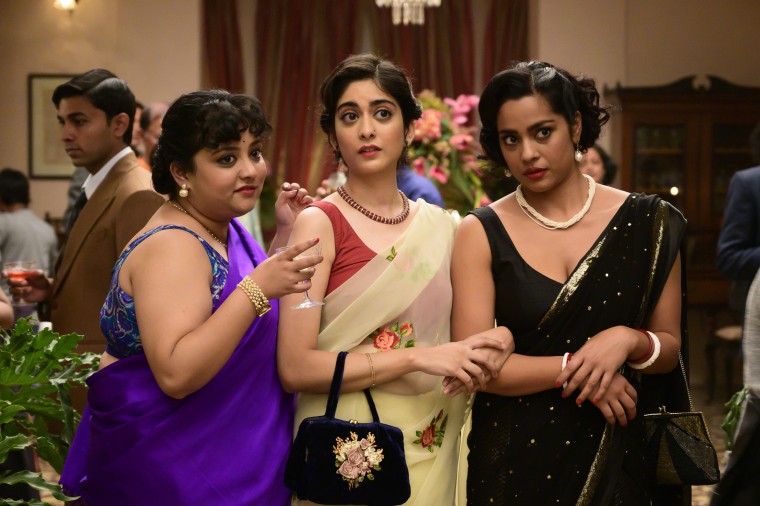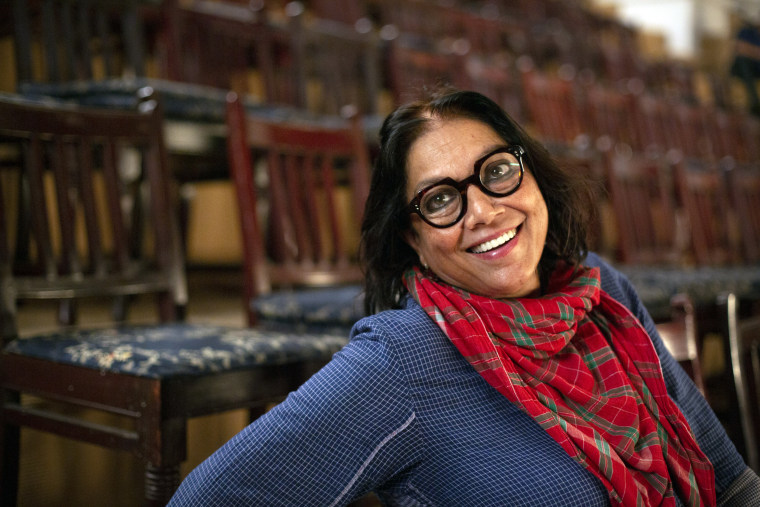The first episode of the new BBC television series “A Suitable Boy,” which features a primarily Indian cast and is set in a newly independent, post-partition India, starts off with a wedding, talks of arranged marriages and ends with violent religious clashes.
Directed by the award-winning Indian American filmmaker Mira Nair, the six-part miniseries, which was adapted from Vikram Seth’s 1993 book of the same name, tells the coming-of-age stories of two young protagonists set against the backdrop of a country adapting to its newfound freedom after almost two centuries under British rule.
Through parallels between personal stories and politics, “A Suitable Boy” exhibits and subverts several cultural stereotypes that deal with traditional family dynamics, religious intolerance, class differences and interfaith relationships.
“All of my work has always been about showing who we really are and not pandering to the Western ideas of our culture,” Nair told NBC Asian America.
Nair, 67, is known for exploring South Asian families and society in her films, which include “The Namesake,” “Mississippi Masala,” "Monsoon Wedding," and “Salaam Bombay!” which was nominated for an Academy Award for best foreign language film.
“A Suitable Boy” was adapted for screenplay by Andrew Davies. It aired on BBC in the U.K. earlier this year and it will make its U.S. debut on the Acorn TV streaming service on Dec. 7.
The drama is set primarily in the fictional Indian town of Brahmpur in 1951. Lata Mehra, played by Tanya Maniktala, is a 19-year-old English literature student at an university whose mother is obsessively trying to arrange her marriage.
Meanwhile, the rebellious Maan Kapoor, played by Ishaan Khatter, begins an affair with an older Muslim woman.

Nair said that she was drawn to the political backdrop of a post-independence India as it prepared for its first national election as a democracy, and how Lata’s character especially embodied the modernity and optimism of the time.
“That idealism and socialism is a huge inspiration for me. My parents came out of that,” she said. Her father, Amrit Nair, was a civil servant in the Indian state of Orissa during the same time and shared the same dream of building a new country.
“It’s important to remember where we came from because we could so easily be made to forget,” she said, adding that while the series holds up a mirror to the current society, it also pushes back against divisive expectations.
For instance, it shows the strength of Hindu and Muslim relationships despite the political complexities. (Nair herself comes from a Hindu family, while her husband is Muslim.) This includes the friendship between Maan and Firoz, his relationship with Saaeda as well as the interfaith romance between Lata and one of her suitors, a Muslim man named Kabir Durrani.
However, the kissing scenes between Lata and Kabir set outside a temple have caused a stir in India. A case has been filed against two executives at Netflix India, where the series is streaming, after some leaders of the ruling Bharatiya Janata Party objected to the scenes on the notion that it hurts religious sentiments.
“A Suitable Boy” also received flak from a few critics for being almost entirely in English, questioning the authenticity of the narrative and for whom the period drama is made.
But Nair said these criticisms feel misplaced. She said the world of the book is also anglicized, the influence of 200 years of British rule.
“If people are feeling the disconnect because of the language, it’s also because they’re not used to the clear, enunciated English that was being spoken by the upper caste in Indian cities even at the time,” she said, “so the whole ‘it’s made for a firangi [white people] audience’ thing isn’t accurate.”
She said she paid great attention to find a balance in the historical details and cultural nuances, from elite families doing the Foxtrot and dancing flawlessly in a Kolkata club to the Hindu and Urdu classical music in the performances by Saeeda, a courtesan and Maan’s lover.

“It’s also a big period piece in its own way,” Nair said. “We had to do months of vital preparation to get everything right: the sets, the costumes, the colors.”
Nair said she tried to capture the essence of India in the 50s through the locations, scouting for real-life places in the city of Lucknow to find bungalows like the ones she herself grew up in, complete with red oxide floors, arches and sprawling gardens.
“A Suitable Boy” features an ensemble cast mostly from the Indian entertainment industry, led by newcomer Maniktala, rising Bollywood star Khatter, acclaimed actress Tabu, as well as prominent performers such as Ram Kapoor, Rasika Dugal, Ranvir Shorey, Vijay Raaz and Aamir Bashir.
Nair, who was involved in the casting process, said she is most excited for U.S. audiences to discover this talent. The miniseries previously aired in the U.K. and has been streaming on Netflix in other parts of the world.
“I also hope that everyone can see aspects of themselves in the story. It’s not a magical journey or something — it’s a human saga,” Nair said. “The characters are myriad, human, and unpredictable, which makes it relatable even if American audiences aren’t aware of the country’s history or the details of the India-Pakistan partition.”
